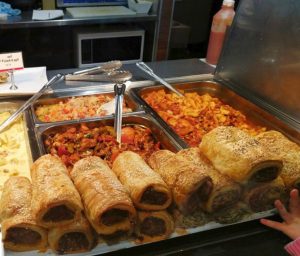 Hospitals should be setting an example on healthy diet but the chances of finding nutritious food in a public hospital are slim, according to findings from a recent study.
Hospitals should be setting an example on healthy diet but the chances of finding nutritious food in a public hospital are slim, according to findings from a recent study.
Cafes, shops and vending machines in NSW public health facilities are supposed to ensure that 75% of ‘every day’ food items fall into the five core food groups, and restrict items high in saturated fat and sugar to 25% of food choices, according to State government policy introduced in 2017.
But a recent audit of 84 food outlets at two major public hospitals in western Sydney found most were not complying.
Only 1 of 14 food outlets (cafe or convenience store) and 23% of 70 vending machines in the hospitals met the healthy food benchmark, the study published in February in Nutrients found.
The state’s framework for food outlets in public health facilities aimed for a complete ban on sale of sugar-sweetened drinks by December 2017, and full compliance with other targets by December 2018.
But the study showed that to date, only one hospital has banned the sale of sugary drinks.
Portion sizes were also a problem, with almost half (48%) of meals in the ‘occasional food’ category exceeding sizes specified by the framework.
Many of the packaged foods and drinks available in hospitals had a “suboptimal nutrient profile”. And choosing healthy eating options was difficult because fewer than one in six carried a front of package health star rating.